Corruption affects communities worldwide, stifling growth and breeding inequality. That's why anti-corruption initiatives are more critical than ever to foster transparency and accountability in both public and private sectors. By collaborating and sharing best practices, we can empower individuals and organizations to take a stand against corruption and advocate for integrity. Join us as we explore effective strategies and inspiring success stories that can help illuminate the path toward a more just society.
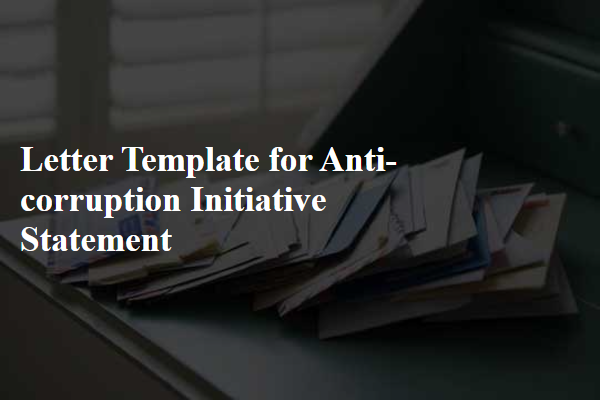
Clear Objective Statement
The anti-corruption initiative seeks to promote transparency, integrity, and accountability within governmental and corporate structures. This initiative aims to reduce corrupt practices by implementing robust monitoring systems, legislative reforms, and public awareness campaigns. Key stakeholders, including civil society organizations and governmental agencies, will collaborate to identify vulnerabilities in existing frameworks. The initiative emphasizes the importance of whistleblower protections, ensuring individuals can safely report unethical behavior without fear of retaliation. Through workshops, training programs, and community engagement, this initiative aspires to cultivate a culture of ethical behavior across all levels of society, fostering trust and fairness in public service delivery.
Commitment to Ethical Standards
The anti-corruption initiative emphasizes strict adherence to ethical standards in both public and private sectors, fostering transparency and accountability among organizations. Corruption, defined as the abuse of power for personal gain, undermines economic development and institutional integrity. The commitment to ethical behavior involves comprehensive training programs for employees and stakeholders, aimed at educating them about anti-bribery laws and regulatory frameworks such as the Foreign Corrupt Practices Act (FCPA) and the UK Bribery Act. Regular audits and assessments will be conducted to identify potential risks and ensure compliance with established codes of conduct. Active participation from civil society and collaboration with law enforcement agencies will further strengthen the framework for monitoring and reporting corruption-related activities. Establishing a whistleblower protection policy will encourage individuals to report unethical behavior without fear of retaliation, creating a culture of integrity and trust within communities and organizations.
Engagement with Stakeholders
The anti-corruption initiative statement emphasizes the importance of engagement with diverse stakeholders, including governmental bodies, non-profit organizations, and business sectors. Collaborative efforts, such as the Transparency International's annual conference, foster open dialogues and knowledge sharing about corruption challenges. Furthermore, engagement metrics, such as the number of participatory workshops held (over 50 in the past year) and feedback from community surveys, reflect the active involvement of affected populations. The initiative aims to create robust networks, leveraging platforms like social media (Instagram and Twitter) to raise awareness and mobilize support against corruption in various regions, particularly in high-risk areas identified in the Global Corruption Index.
Implementation of Monitoring Mechanisms
The implementation of monitoring mechanisms in anti-corruption initiatives is critical for ensuring transparency and accountability in government institutions. Specific frameworks, such as the United Nations Convention Against Corruption (UNCAC), provide guidelines for establishing robust oversight systems. Such systems may include independent audit committees, real-time tracking of public spending, and comprehensive reporting processes. Studies show that countries with effective monitoring mechanisms, like Sweden and New Zealand, report lower corruption rates, which positively impacts social trust and economic stability. Regular public disclosures and citizen involvement in tracking governmental expenditure further enhance the effectiveness of these measures, allowing for a more engaged and vigilant public.
Transparency and Accountability Measures
Transparency and accountability measures serve as critical pillars in anti-corruption initiatives across various sectors, including government, corporate, and civil society. Implementing rigorous frameworks ensures that financial transactions, such as public procurement processes or corporate expenditures, remain open and verifiable, often utilizing technologies like blockchain to enhance traceability. Regular audits, conducted by independent entities, can identify discrepancies and promote ethical practices, fostering trust among stakeholders. Public access to information, whether through online platforms or community forums, empowers citizens to engage with governmental processes, encouraging participation and vigilance. Furthermore, training programs focused on ethical standards can cultivate a culture of integrity, equipping individuals with tools to resist corruption. Overall, these measures create an environment where accountability thrives, and malicious activities are significantly deterred.

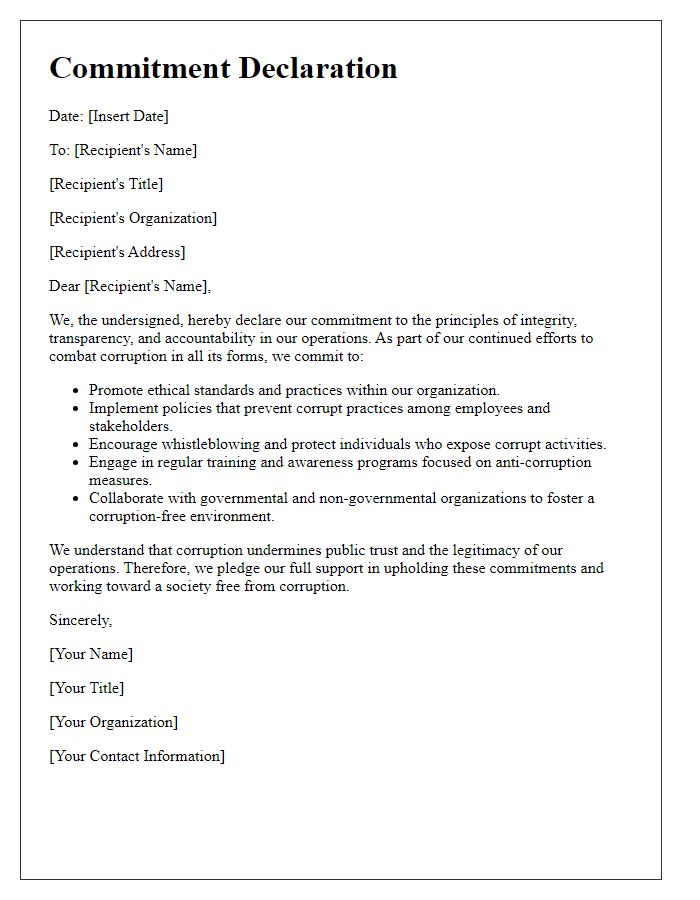
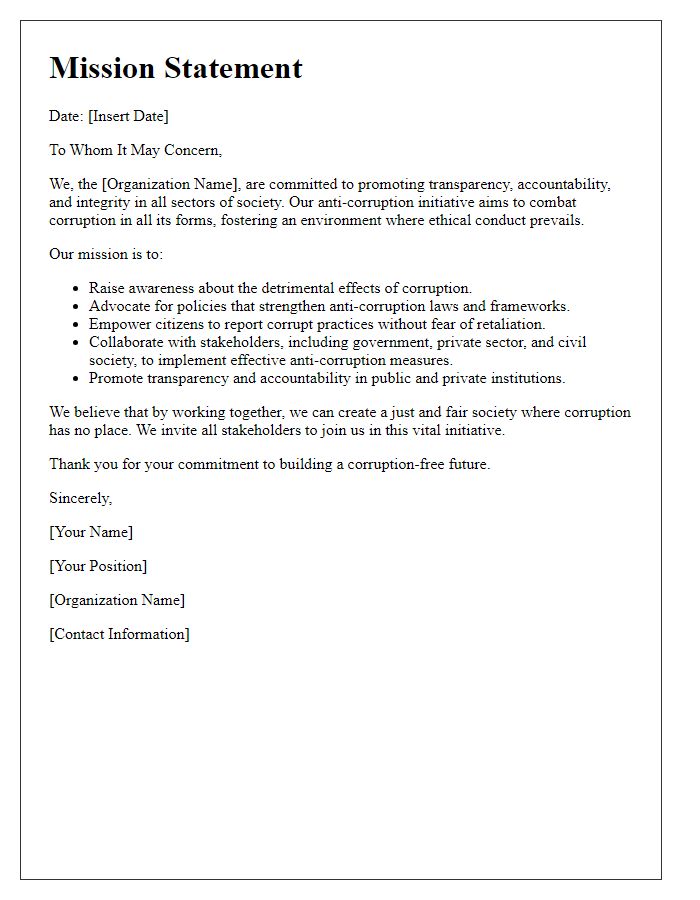
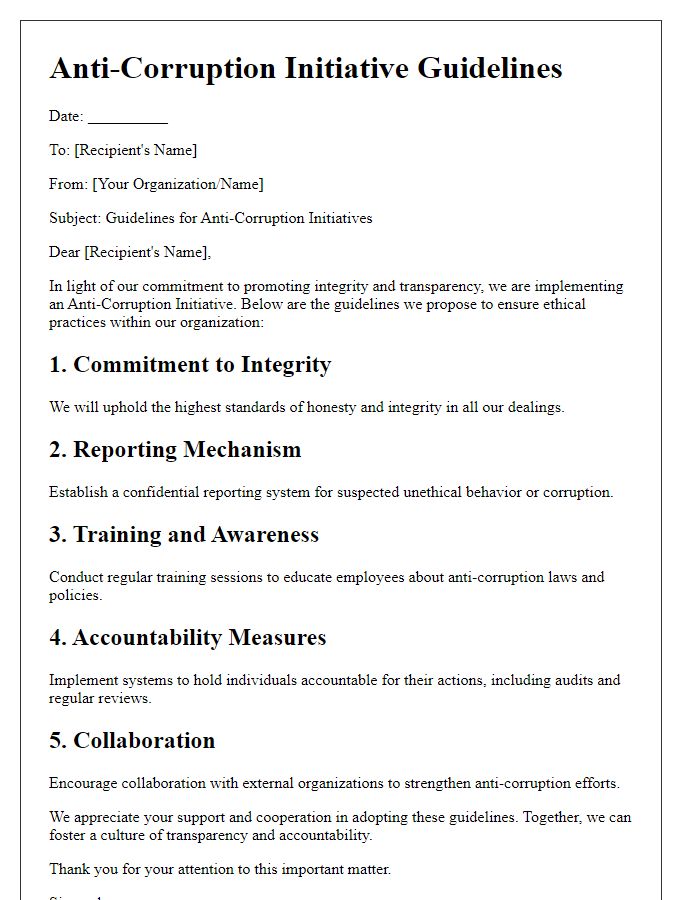
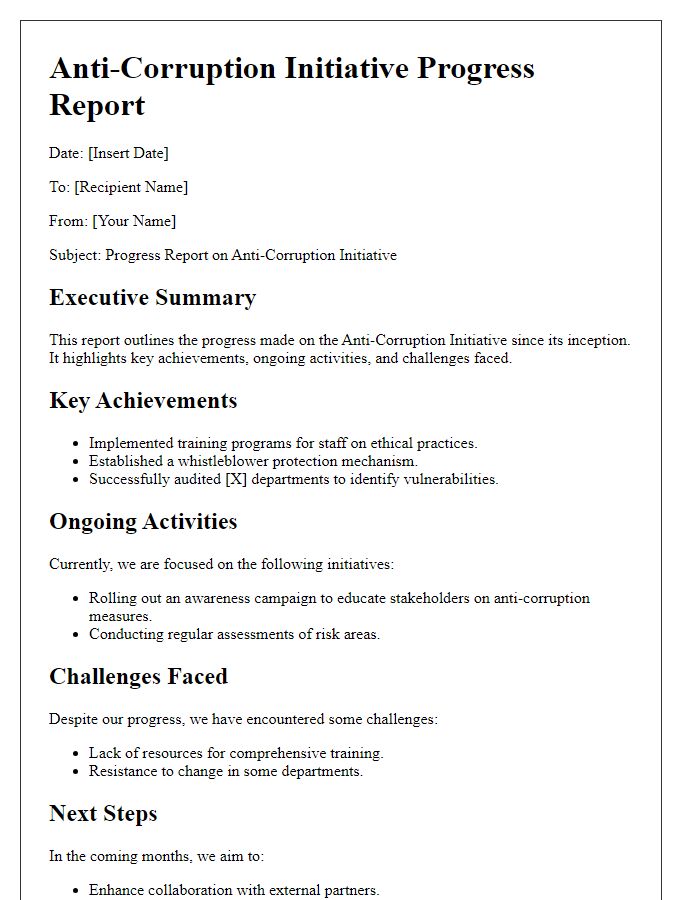
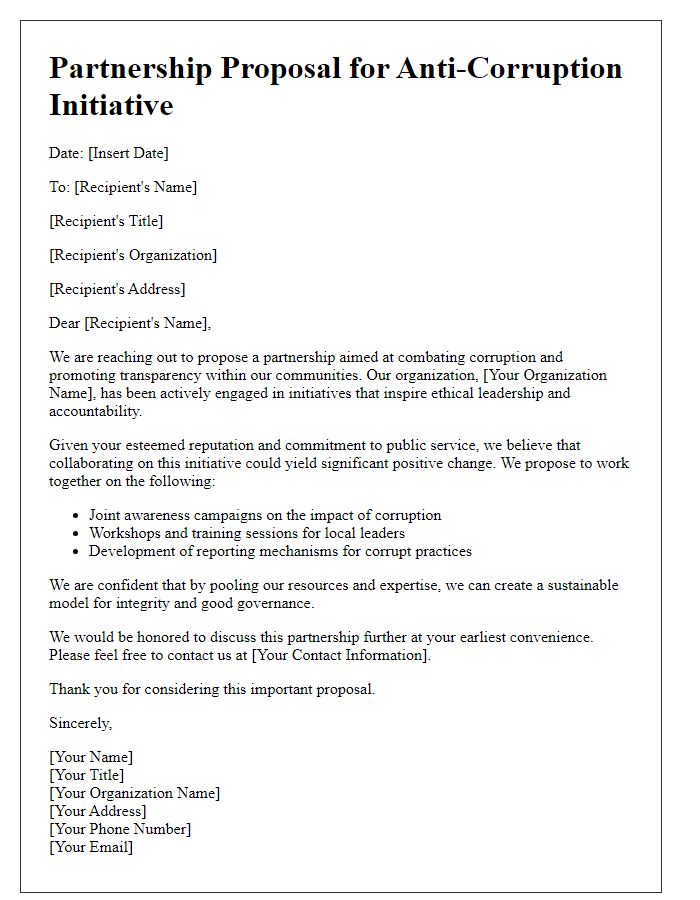
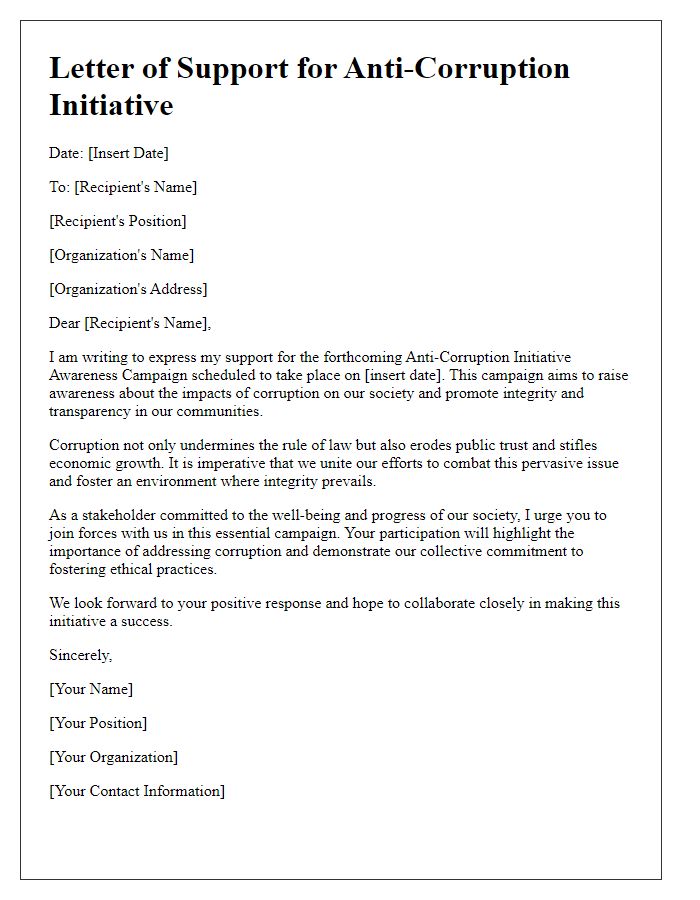
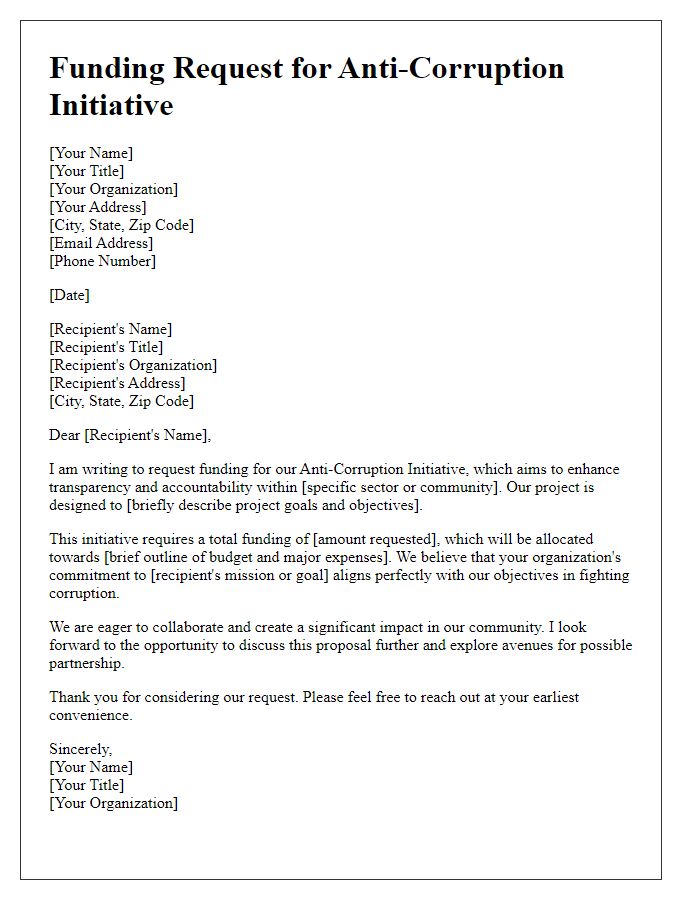
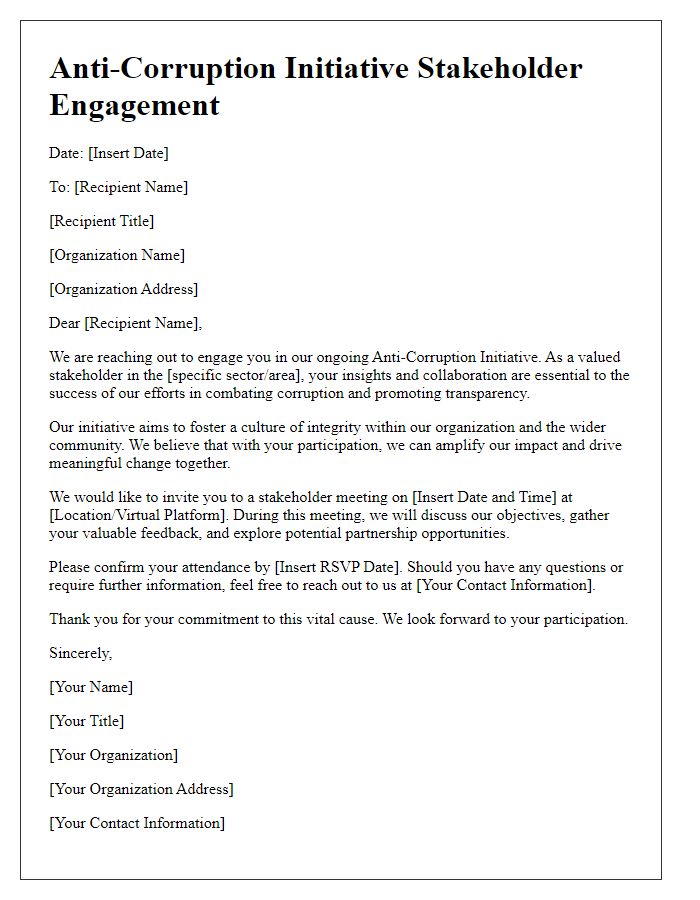
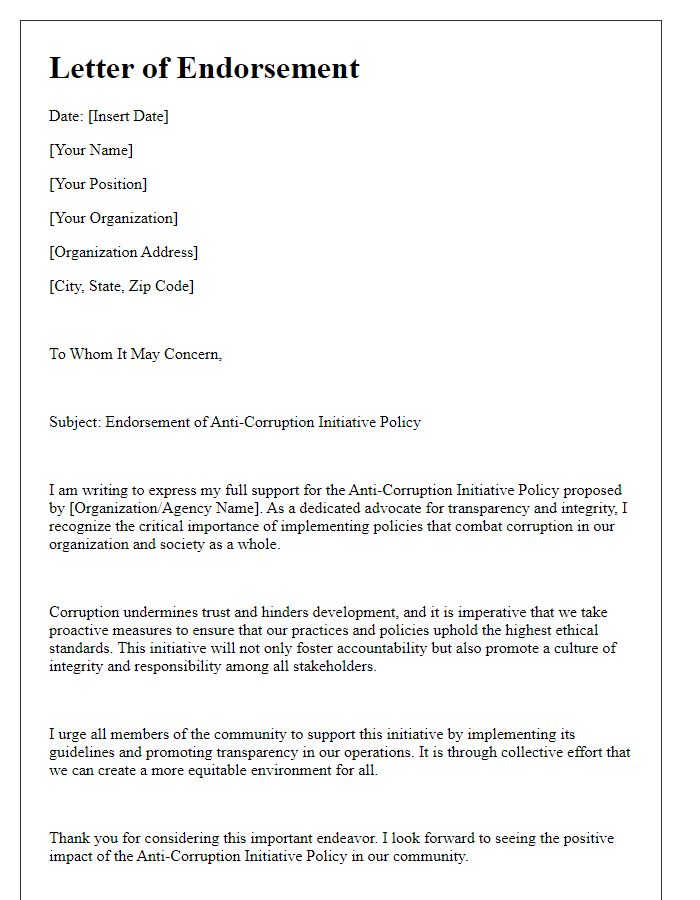
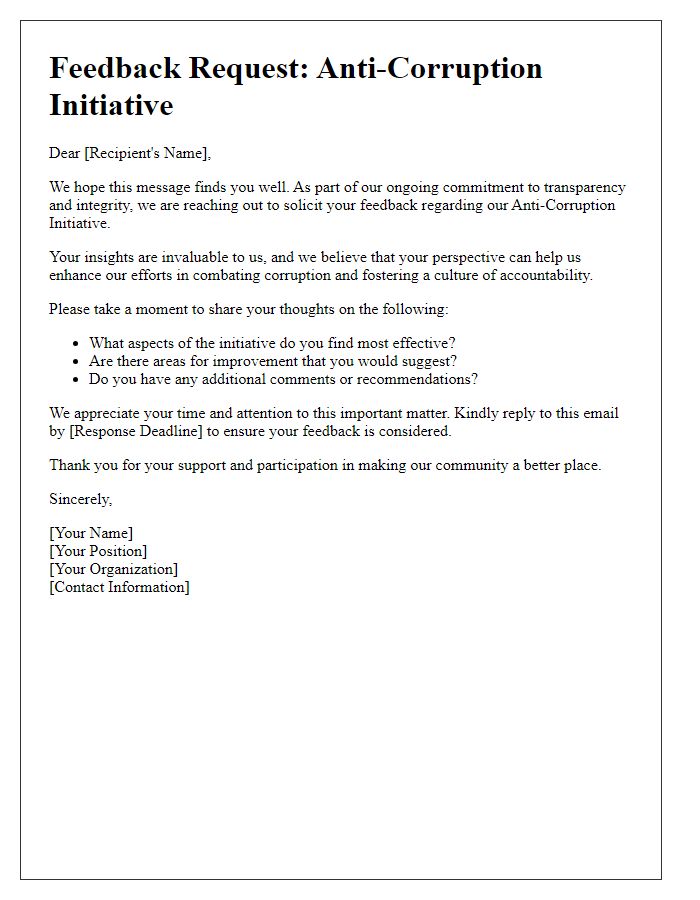


Comments